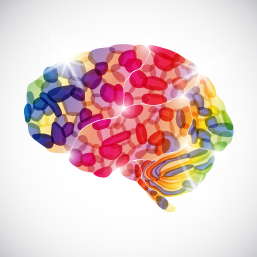
Autism Spectrum Disorder (ASD) is a neurological developmental disorder that affects approximately 1 in 68 children. ASD influences social communication, social interaction, and behaviors, interests, or activities, although particular symptoms can vary widely from child to child. While the cause is unknown, appropriate diagnosis and early intervention can improve symptoms and overall functioning.
Alvord, Baker & Associates provides ASD evaluation services for children as young as 15 months of age. Reasons a parent or guardian may request an evaluation include but are not limited to: concerns expressed by a pediatrician or daycare provider, delays in language development, apparent indifference to others, and reduced use of gesture (i.e. pointing). Generally, school based learning disability assessments focus on differences between intellectual ability and academic achievement and do not address ASD or behavioral challenges that often take place in the home.
The evaluation process typically begins with an intake to obtain background information and assess areas of concern. If the child is under 3 years of age, the evaluation includes a developmental assessment to determine overall language, fine motor, and cognitive skills as well as a standardized play based interaction. We also recommend school/daycare observations in order to gain a full understanding of relationships with peers. If your child is school aged, the evaluation will likely include an assessment of intellectual ability, academic skills, executive functioning (including flexibility, attention, and impulse control), language, and social-emotional functioning. We use the Autism Diagnostic Observation Schedule (ADOS), a gold-standard autism spectrum disorder assessment tool, among other measures for ASD diagnostic purposes. After testing completion, we arrange a feedback session to discuss the results, diagnoses, and recommendations including the possibility of additional interventions. We subsequently provide a comprehensive report.
 Alvord, Baker & Associates offers comprehensive evaluation services to address a variety of difficulties in children ages 2-18. Testing typically includes an assessment of intelligence, academic skills, executive functioning (including attention, planning, and impulse control), memory, language, visual-motor ability, and social-emotional and behavioral functioning. We also conduct admissions testing required by many area private schools.
Common reasons that parents request an evaluation are to document or rule out diagnoses such as attention deficit/hyperactivity disorder, determine the presence of learning or developmental disabilities, and learn about how cognitive strengths/weaknesses and emotional functioning (such as worries or sadness) impact behavioral and academic performance. As part of the testing, you receive recommendations that can be used at school and at home.
Testing generally begins with an intake to obtain background information and to assess areas of concern. If appropriate, we conduct testing with the child, generally over the course of 2-3 days, using standardized measures and assessment tools. As part of the process, we collect information from teachers and if necessary, arrange a school observation. When testing is complete, we arrange a feedback meeting to discuss the results, diagnostic impressions, and recommendations. Afterwards, you receive a detailed written report.
Alvord, Baker & Associates offers comprehensive evaluation services to address a variety of difficulties in children ages 2-18. Testing typically includes an assessment of intelligence, academic skills, executive functioning (including attention, planning, and impulse control), memory, language, visual-motor ability, and social-emotional and behavioral functioning. We also conduct admissions testing required by many area private schools.
Common reasons that parents request an evaluation are to document or rule out diagnoses such as attention deficit/hyperactivity disorder, determine the presence of learning or developmental disabilities, and learn about how cognitive strengths/weaknesses and emotional functioning (such as worries or sadness) impact behavioral and academic performance. As part of the testing, you receive recommendations that can be used at school and at home.
Testing generally begins with an intake to obtain background information and to assess areas of concern. If appropriate, we conduct testing with the child, generally over the course of 2-3 days, using standardized measures and assessment tools. As part of the process, we collect information from teachers and if necessary, arrange a school observation. When testing is complete, we arrange a feedback meeting to discuss the results, diagnostic impressions, and recommendations. Afterwards, you receive a detailed written report. Autism Spectrum Disorder (ASD) is a neurological developmental disorder that affects approximately 1 in 68 children. ASD influences social communication, social interaction, and behaviors, interests, or activities, although particular symptoms can vary widely from child to child. While the cause is unknown, appropriate diagnosis and early intervention can improve symptoms and overall functioning.
Alvord, Baker & Associates provides ASD evaluation services for children as young as 15 months of age. Reasons a parent or guardian may request an evaluation include but are not limited to: concerns expressed by a pediatrician or daycare provider, delays in language development, apparent indifference to others, and reduced use of gesture (i.e. pointing). Generally, school based learning disability assessments focus on differences between intellectual ability and academic achievement and do not address ASD or behavioral challenges that often take place in the home.
The evaluation process typically begins with an intake to obtain background information and assess areas of concern. If the child is under 3 years of age, the evaluation includes a developmental assessment to determine overall language, fine motor, and cognitive skills as well as a standardized play based interaction. We also recommend school/daycare observations in order to gain a full understanding of relationships with peers. If your child is school aged, the evaluation will likely include an assessment of intellectual ability, academic skills, executive functioning (including flexibility, attention, and impulse control), language, and social-emotional functioning. We use the Autism Diagnostic Observation Schedule (ADOS), a gold-standard autism spectrum disorder assessment tool, among other measures for ASD diagnostic purposes. After testing completion, we arrange a feedback session to discuss the results, diagnoses, and recommendations including the possibility of additional interventions. We subsequently provide a comprehensive report.
Autism Spectrum Disorder (ASD) is a neurological developmental disorder that affects approximately 1 in 68 children. ASD influences social communication, social interaction, and behaviors, interests, or activities, although particular symptoms can vary widely from child to child. While the cause is unknown, appropriate diagnosis and early intervention can improve symptoms and overall functioning.
Alvord, Baker & Associates provides ASD evaluation services for children as young as 15 months of age. Reasons a parent or guardian may request an evaluation include but are not limited to: concerns expressed by a pediatrician or daycare provider, delays in language development, apparent indifference to others, and reduced use of gesture (i.e. pointing). Generally, school based learning disability assessments focus on differences between intellectual ability and academic achievement and do not address ASD or behavioral challenges that often take place in the home.
The evaluation process typically begins with an intake to obtain background information and assess areas of concern. If the child is under 3 years of age, the evaluation includes a developmental assessment to determine overall language, fine motor, and cognitive skills as well as a standardized play based interaction. We also recommend school/daycare observations in order to gain a full understanding of relationships with peers. If your child is school aged, the evaluation will likely include an assessment of intellectual ability, academic skills, executive functioning (including flexibility, attention, and impulse control), language, and social-emotional functioning. We use the Autism Diagnostic Observation Schedule (ADOS), a gold-standard autism spectrum disorder assessment tool, among other measures for ASD diagnostic purposes. After testing completion, we arrange a feedback session to discuss the results, diagnoses, and recommendations including the possibility of additional interventions. We subsequently provide a comprehensive report. 